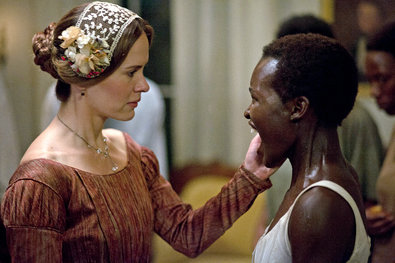 In Mark 5:25-34, Mark tells the story of the woman who suffered from the issue of bleeding for 12 years. I don’t think he does this woman’s story justice. I’m not saying his words weren’t God-breathed or infallible. I’m just saying if I told the story I’d schedule an interview with the woman, find out her life story, write an article, and sell it to the Jerusalem Chronicle. Of course, 10% would go to the local tabernacle and another 10% to the disciples’ ministry fund.
In Mark 5:25-34, Mark tells the story of the woman who suffered from the issue of bleeding for 12 years. I don’t think he does this woman’s story justice. I’m not saying his words weren’t God-breathed or infallible. I’m just saying if I told the story I’d schedule an interview with the woman, find out her life story, write an article, and sell it to the Jerusalem Chronicle. Of course, 10% would go to the local tabernacle and another 10% to the disciples’ ministry fund.
It’s not every day a woman with a 12 year long history of hemmorhaging is instantaneously healed. At least not today. Perhaps miracles were so commonplace wherever Jesus went that Mark only told the story as an aside rather than as a feature article. But if I wrote an article about the healing of this woman, it might go something like this:
One evening, the family of a woman who suffered from internal bleeding wrapped her resting body in a burlap sack, laid her over a donkey, and travelled by night through the desert. Their priest said her sickness indicated demon possession. Her family couldn’t risk her demon infecting others, so they journeyed to the River Jordan. They laid her resting body by a Palm Tree, prayed over her, and then left her in the cool of the night.
For the next several years, she went from city to city begging for food, making sure not to stay long enough for people to discover her hemorrhaging and judge her demon possessed. After more than 10 years, she found solace in a cave outside of a town. She hid in the cave, so the town’s people wouldn’t drive her away.
Early in the morning, before the sun rose, while merchants set up, she went into town and stole food. Before sunrise, she disappeared and went back to the cave. She started out traveling into town every few days, but soon she could only find the strength to go once a week. Two outcasts, who dwelt in a nearby cave, said they would bring food to her if she would guarding their cave from animals and wash their clothes.
One morning, when they returned, they told her they saw Jesus of Nazareth and His disciples walking toward the town. The hemorrhaging woman wanted to go see the man some called “The Miracle Maker,” but she couldn’t travel that far in the hot sun. Only one of her companions could go with her, so they wouldn’t leave the caves unattended. But just one of them couldn’t carry her across the desert. She could only see Jesus of Nazareth if she managed the strength to cross the desert alone.
That morning, risking her health, she walked across the desert. Many times, fainting only to wake and realize the trail of blood she left attracted beasts of the fields and birds of prey. Using her staff, she managed to beat off the Hyenas, Vultures, and other animals that tried to feed on her. Thinking about all of the anger festering within her from years of feeling unwanted by her family and those who claimed to be the righteous of God, she wept tears stained with blood.
By the time she got to the town, she had lost so much blood that she collapsed from exhaustion. The trail of blood, once no thicker than a snail’s trail, now looked like a crimson carpet rolled out for Kings. She pulled her body with her weakened arms. Grains of sand entered her bloodstream, causing the pain from the intense heat of the sun to become unbearable.
Almost unable to move, trying to scream out for Jesus, the din of the crowd and shouts from those who saw her and yelled, “Leave us, Devil woman!” drowned out her bloodied gasps. A group of men tried to carry her back to the desert, but they could not stand the putrid smell of her decaying body long enough to get within 20 Cubits of her.
Somehow, well into the afternoon, while Jesus taught outside of the synagogue, she managed to find enough strength to crawl through the crowd. That morning, before she left, her companions told her if she could not manage to reach Jesus she might die in the streets. Knowing the risks of death from the loss of blood, she answered “If only I can touch His garment, I will be healed.”
Saying those words from the moment she left her cave until this moment, she reached out and touched the hem of Jesus’ garment. He looked up and said, “Who touched me?” Fearing the crowd might drive her away because she interrupted Jesus’ teaching, she tried to hide from His wandering gaze. Aware of the overwhelming stench, the crowd looked around for the source of the odd odor. Realizing the source of the putrid aroma, the crowd began to back away from her. Two shepherds covered their faces with their headdresses and dragged the woman’s blood stained, almost lifeless body to the foot of Jesus.
Laying there, in the dusty street, fearful of His response, the woman buried her face between her outstretched arms. Jesus, ignoring the stench, knelt, lifted her head, and said, “Daughter, your faith has made you well. Go in peace, and be healed of your affliction.” In a moment, after 12 years of suffering, her wounds closed, the blood dried up, and she felt no more pain. Smiling, her tears of mourning became tears of joy. She stood and embraced “The Miracle Maker.”
Toward the end of my interview, I asked the woman who once cried because of the loneliness that festered within her from years of abandonment if she felt anymore anger. Smiling, she looked at me, leaned forward, and said:
“For many years, I dealt with an issue far greater than that of hemorrhaging. I dealt with an issue of bitterness that entangled me with such an intensity that demons did not need to possess me. I allowed the bitterness within me to possess me. The day Jesus healed me, all of the bitterness left me. Jesus gave me the power to forgive. I lost so much of my life, not because of the years of physical suffering, but because of years of allowing my hatred to embitter me.”
Now, just a few years after the afternoon this woman looked into the gentle eyes of ’The Miracle Maker,’ she travels to the same towns where people once called her wretched filth or demon possessed. She tells them of Jesus’ love and of His healing power. But more than that she tells them of the power within each of us to receive Jesus’ forgiveness from sins and to forgive those who persecute them.
Why I chose to dramatize this story:
One morning, God spoke two words to me: “Remain desperate,” and then He brought the story of the woman with the issue of blood to my mind. I don’t know if she was cast out by her family, or if she had to crawl across a desert to get to the town just to touch Jesus’ garment. I’m sure there are Bible scholars who could tell me there’s evidence that she lived with her family on the outskirts of town. I am sure the story does not go exactly how I told it.
However the story goes, I do know she remained desperate. I am sure she not only remained desperate for healing from her issue of bleeding. I am sure she also dealt with years of from loneliness that caused her to become embittered. I am sure she was embittered toward her family and those who persecuted her. I am sure she had become embittered toward God for allowing her to go through 12 years of suffering.
Though, she chose to remain so desperate for physical and emotional healing that she reached out and touched the hem of Jesus’ garment. I believe the greatest issue she needed healing from was not the issue of bleeding, it was the issue of loneliness and bitterness that had consumed her.
What physical, financial, or emotional issues are you dealing with today? Are you remaining desperate? Are you so desperate for Christ’s healing that you would cross deserts to reach out and touch the hem of His garment? Do you have enough faith that you can say, “If only I can touch His garment, I will be healed,” and then go through unbearable pain to reach out to Him?
Whatever issues you are facing today, God would say to you, “Remain desperate.” Cry out to Him. And if your prayers are muffled by the distractions of the world, do not lose faith. That’s when you need press in through the crowd, and reach out to touch the hem of Jesus’ garment.
